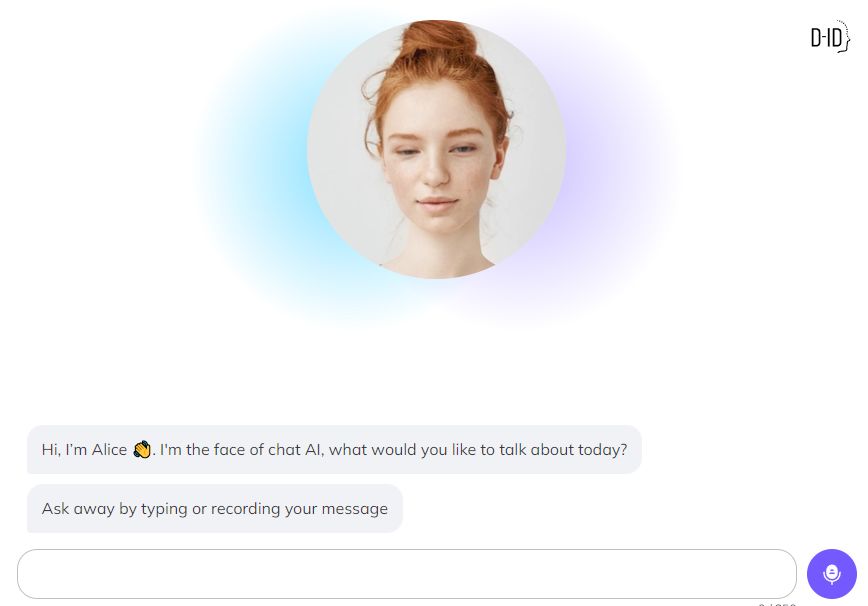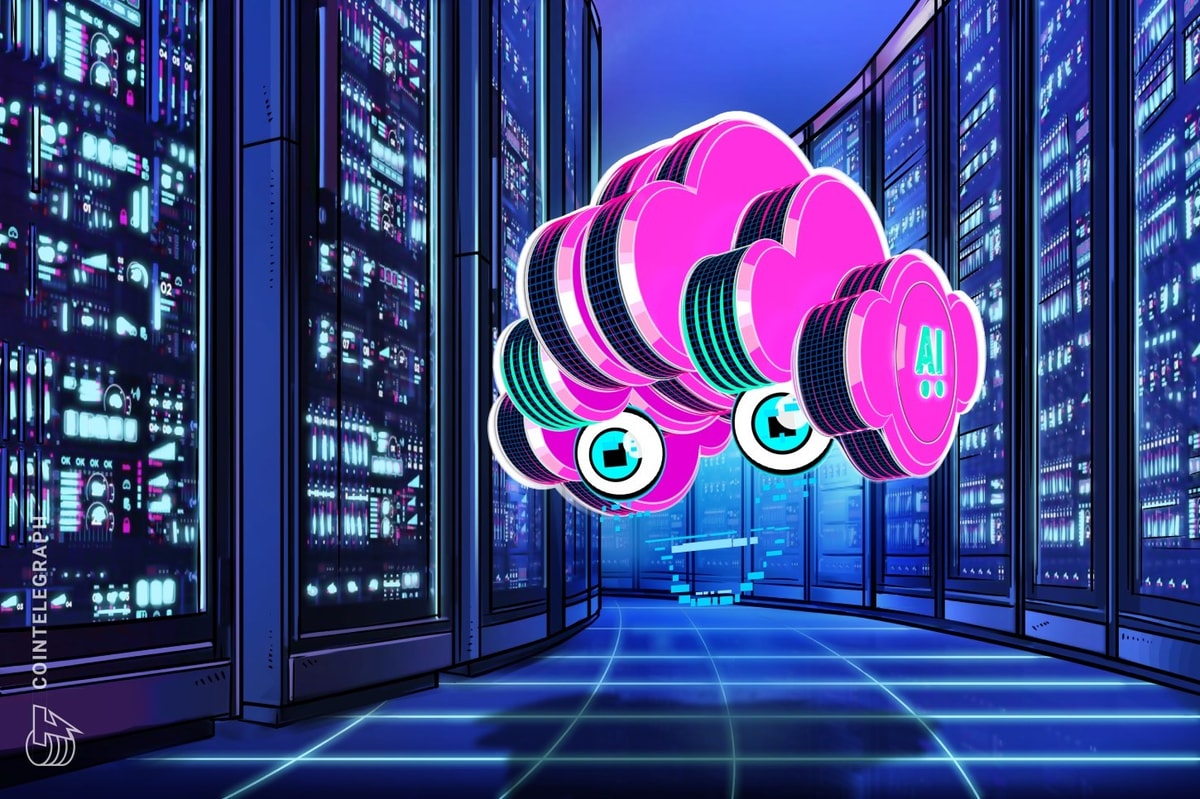In a previous article, we discussed the web service D-ID. D-ID’s technology is based on deep learning algorithms that analyze and synthesize the input data to create a realistic and personalized avatar. The service has potential applications in various industries, including entertainment, education, and customer service, mental health, and language learning.
D-ID, an Israeli startup that previously produced Deep Nostalgia technology, has now developed a new chatbot. A project called D-ID Chat combines ChatGPT technologies with proprietary AI programs. According to the creators, D-ID Chat aims to provide a more personalized and human-like conversation experience by using AI to generate responses that mimic the user’s writing style and tone.

You may now write or tell the bot whatever you wish. We conversed with her for a while, and we got the impression that, unlike in the case of ChatGPT, there are scripted heuristics operating behind the scenes: No matter what style was used and how the questions were delivered, the bot consistently provided the same responses. While she speaks clearly, there isn’t the typical small-frequency lip bounce that results from reflexive lip-synching.
It seems like the bot is programmed with a limited set of responses, and it lacks the ability to adapt to different contexts or learn from previous interactions. Additionally, it’s interesting to note that the avatar’s lip movements don’t match the audio perfectly, indicating that some post-production editing may have been involved.
We do, however, wonder when Apple and Google will develop similar solutions. Wouldn’t it be wonderful to see Apple give Siri a nice avatar? They are completely prepared for this. In fact, it is possible that Apple and Google are already working on developing something like this but have not yet announced it. Additionally, while an avatar for Siri may enhance the user experience, it may not be a top priority for Apple at this time.
These avatars will revolutionize the way we communicate and interact with technology, creating a more personalized and engaging experience for users. However, concerns about privacy and security will need to be addressed as this technology becomes more widespread. This year, we predict that talking avatars will overtake the world.
Check out this link to speak with a face-to-face bot: chat.d-id.com
- Avaturn is a new product from the in3D startup that allows users to create a professional-grade 3D avatar in just a few minutes. It requires three selfies to create a realistic avatar head, which can be animated and exported anywhere. Users can customize their avatar with different clothes, accessories, and hairstyles and create groups with other users and chat with each other.
- Ready Player Me, a metaverse platform for creating avatars, is experimenting with AI-generated technology to allow users to design their avatar outfits innovatively. The company is offering a beta version of its avatar creator for free, allowing users to generate unique outfits using the company’s DALL-E generative AI art platform. Ready Player Me Labs aims to investigate new advancements and features in avatar customization before making them available to the platform’s users and developers.
- The 3D Avatar Diffusion is a machine learning algorithm that can take a single 2D image of a human face and create a 3D avatar. It was developed by a team of researchers at Microsoft Research and is based on a type of machine-learning algorithm called a diffusion model. To train the model, the researchers used a dataset of over 200,000 3D face models with different skin tones, hairstyles, and facial features.
Read more about AI:
Read More: mpost.io








 Bitcoin
Bitcoin  Ethereum
Ethereum  Tether
Tether  XRP
XRP  Solana
Solana  USDC
USDC  Dogecoin
Dogecoin  Cardano
Cardano  TRON
TRON  Lido Staked Ether
Lido Staked Ether  Wrapped Bitcoin
Wrapped Bitcoin  Sui
Sui  Chainlink
Chainlink  Wrapped stETH
Wrapped stETH  Avalanche
Avalanche  Hyperliquid
Hyperliquid  Stellar
Stellar  Shiba Inu
Shiba Inu  Hedera
Hedera  LEO Token
LEO Token  Bitcoin Cash
Bitcoin Cash  Toncoin
Toncoin  Litecoin
Litecoin  Polkadot
Polkadot  Monero
Monero  USDS
USDS  WETH
WETH  Bitget Token
Bitget Token  Wrapped eETH
Wrapped eETH  Pi Network
Pi Network  Binance Bridged USDT (BNB Smart Chain)
Binance Bridged USDT (BNB Smart Chain)  Pepe
Pepe  Ethena USDe
Ethena USDe  Coinbase Wrapped BTC
Coinbase Wrapped BTC  WhiteBIT Coin
WhiteBIT Coin  Bittensor
Bittensor  Aave
Aave  Uniswap
Uniswap  Dai
Dai  NEAR Protocol
NEAR Protocol  Aptos
Aptos  OKB
OKB  Jito Staked SOL
Jito Staked SOL  Ondo
Ondo  BlackRock USD Institutional Digital Liquidity Fund
BlackRock USD Institutional Digital Liquidity Fund  Cronos
Cronos  Tokenize Xchange
Tokenize Xchange  Ethereum Classic
Ethereum Classic